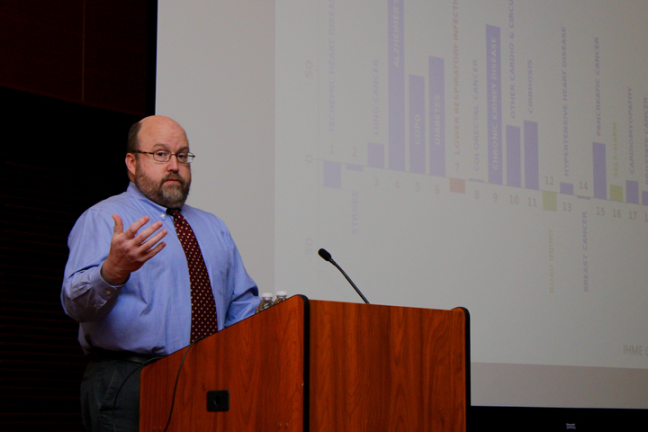University of Washington professor Thomas Montine spoke on the advance in precision medicine to treat neurodegenerative diseases at the Alzheimer’s and Parkinson’s Research Day Thursday.
Kicking off the University of Wisconsin’s School of Medicine and Public Health’s Alzheimer’s and Parkinson’s event, keynote speaker Montine delivered the opening speech on precision medicine.
Precision medicine is the use of new knowledge and technology to optimize the timing and targeting of therapies for specific individuals, Montine said.
“The goal is to bring clarity to chemical molecular complexity of dementia and other neurodegenerative diseases,” Montine said.
As two of the fastest growing causes of death from 1990 to 2005, Alzheimer’s and Parkinson’s deaths have increased 200 and 150 percent, respectively.
Montine gave contrast to the current state of treatment and the precision method going forward as moving away from a “one size fits all” to providing treatments that correspond with the particular disease.
The one size fits all treatment describes how doctors may treat patients with one of these neurodegenerative diseases as if they had the other, Montine said. This leads to possible misalignments in regards to the treatment and patients molecular drivers — what’s causing their symptoms on the molecular level, he said.
Montine described some of the neurological data reflecting the successes of precision medicine. This indicates that the method’s ability to dissect the genome and, ultimately, extract useful information can and will be used toward bettering future treatments, Montine said.
“It is amazing that we live in a time where we can interrogate the human genome for thousands and thousands of people, and work with that data,” Montine said.



















